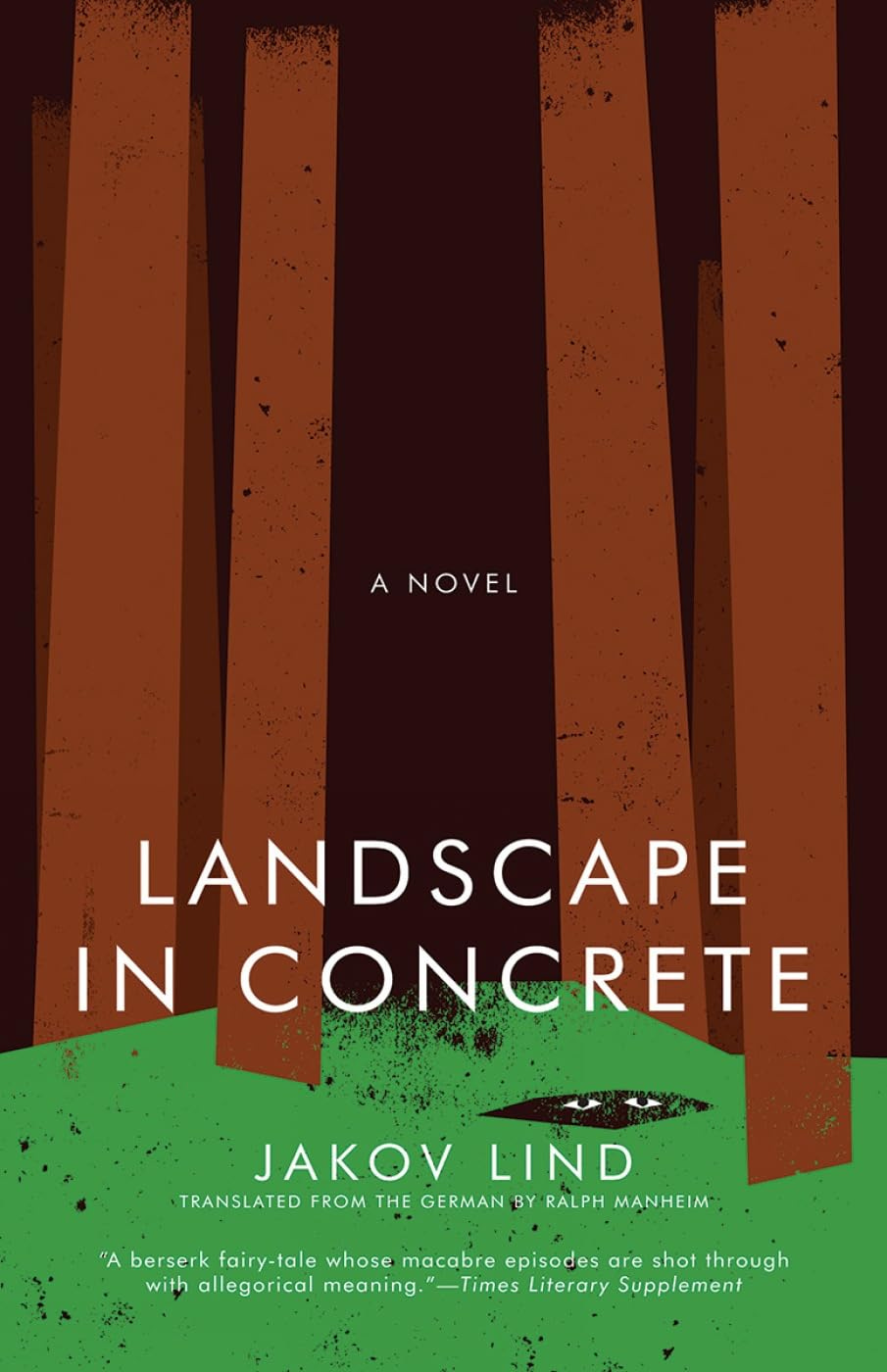Jakov Lind's Landscape in Concrete
Turns out the excesses of surrealism are perfectly apt when attempting to honestly depict the incessant cruelty of fascism.
This post originally appeared on my website in Jan 2020.
[Open Letter, 190 pp. Translated by Ralph Manheim]
A complex depiction of fascism in action through the eyes of an Austrian-born Jew, written originally in German while living in the UK in 1963. Lind’s approach to his subject—which follows the path of a Nazi general who claims to have lost his regiment in a single incident (by drowning in an extremely deep pit of mud, he claims), running into various encampments where he must explain himself, adapt—is immediately provocative not only by way of its subject matter, and taking the voice of a sick side, but also in how slippery his perspective manages to be in how it projects the machinations of its conspirators as they continue through the rampant chaos of their world.
Immediately we are not sure what is wrong with General Bachmann, as though he seems in clear control of his own mind, his ideas about how to unravel his predicament of displacement when forced to explain himself in meeting others prove that something in the most basic essence of his authority is off. Running into another deserter in the wilderness, he claims to only have briefly been thrown off track, eventually conspiring to dream up ways he can insert himself back into a position with his country’s military. There is a early-Beckett-ian absurdity to his suggestion of possible plans for joining up, for instance, that he bury himself with a breathing pipe in nearby ground and burst from the earth when a funeral procession passes, suggesting that, “Anyone who sees a soldier in uniform rising out of the grave is bound to stand up for him.” The interaction between these two is all nit-picking and provocation, which eventually ends in an argument over who gets the liver of a goose they excitedly kill.
The bizarre babbling of Bachmann immediately brings to mind, too, the Judge from Blood Meridian, in how it interlaces righteous authority with psycho-babble, breaking up the means through which we are able to parse the madness that seems inherent in hatred, in designing to establish one’s self’s culture as by default in the right. By allowing us to look through eyes that struggle to see the world straight, and by refusing to dip the cards of such a hand, we are given a look into the actual patent logic that supports atrocity, and how it spreads from one to another through paranoia, patriotism, and other more abstract manifestations of command. It is the sort of war book that feels more brain-damaged in its essence than simply cold; it forces us to read between the lines, creating a much more intimately thrilling and evocative direction for a voice that might otherwise lay too flat upon the page.
Keep reading with a 7-day free trial
Subscribe to Dividual to keep reading this post and get 7 days of free access to the full post archives.




